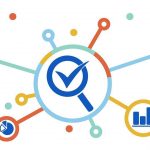Barely recovering from the financial crisis and facing disruption from new technology, the insurance industry has to leverage on information outside of their organization to compete in today's economy. With the global economy still struggling to recover from the financial crisis, insurers have been fighting to maintain policy numbers amidst low-interest rates. Life insurance … [Read more...] about How the Insurance Industry Uses Mobility Data?
Big Data
Learn everything you need to know about big data. Find out how companies are using this revolutionary technology and what it means for your business strategy.
For AI to Change Business, It Needs to Be Fueled with Quality Data
There's no doubt that AI has usurped big data as the enterprise technology industry's favorite new buzzword. After all, it's on Gartner's 2017 Hype Cycle for emerging technologies, for a reason. While progress was slow during the first few decades, AI advancement has rapidly accelerated during the last decade. Some people say AI will augment humans and maybe even make us … [Read more...] about For AI to Change Business, It Needs to Be Fueled with Quality Data
Five Ways Healthcare Data Analytics Can Help You
Big data analytics is surfacing into a promising field in healthcare as it provides valuable insights from extremely large data sets and enhances outcomes while reducing costs. While it is a valuable asset, intelligent decisions regarding treatment options and intervention can be driven through analyzing data. The ability to track patterns and trends from multiple sources … [Read more...] about Five Ways Healthcare Data Analytics Can Help You
Why Digital Innovation Starts with a Digital Core
A lot of times when the prevalent industry trends are discussed among industry folks, there are usually two directions in which the conversation goes. It is either varying states of disbelief at the rate of change within the business and IT landscapes; or it is enthusiastic agreement on the importance of moving with the times and adopting a digital infrastructure. The former is … [Read more...] about Why Digital Innovation Starts with a Digital Core
The Power of Predictive Analytics in Hiring
In an ever-increasing corporate landscape, making quality hires is critically important for organizations looking to improve their bottom line. The U.S. Department of Labor estimates that the cost of a bad hire is in excess of 30% of that employee's first-year earnings. To reduce the occurrence of bad hires, a growing number of businesses are turning to predictive analytics and … [Read more...] about The Power of Predictive Analytics in Hiring
What is big data?
Big data is a term that refers to the massive amount of digital data created and shared every day. Big data can transform how we live, work, and communicate. It can be used to improve everything from public health and urban planning to business and marketing.
Big data is also changing the way we think about privacy and security. The volume, velocity, and variety of big data present challenges and opportunities for organizations and individuals. Regardless, big data is here to stay, and its impact will only continue to grow in the years to come.
What is big data analytics?
Big data analytics is the process of turning large, complex data sets into actionable insights. Businesses use various analytical tools and techniques, including machine learning and statistical analysis, to do this.
Big data analytics can be used to improve decision-making in areas like marketing, operations, and customer service. It can also be used to identify new business opportunities and optimize existing processes. With the help of big data analysis, businesses can gain a competitive edge by using their data better.
Want to learn more about big data? Datafloq has courses available. Contact us to get started.
When was big data introduced?
The term big data was coined in the 1990s, with some giving credit to John Mashey for popularizing the term. However, the concept of big data has been around for much longer.
Where does big data come from?
In the early days of computing, scientists and businesses began to realize that the amount of data being generated was increasing exponentially. As a result, they began to develop new methods for storing and processing data.
Over time, these methods have become increasingly sophisticated and have played a key role in enabling businesses to make sense of vast amounts of information. Today, big data is used in various industries, from retail to healthcare, and its importance is only likely to grow in the years to come.
What are examples of big data?
One of the most common examples of big data is social media data. With over 2 billion active users, Facebook generates a huge amount of data every day. This includes information on user interactions, posts, and even location data. Analyzing this data can help companies better understand their customers and target their marketing efforts.
Another example of big data is GPS signals. These signals are constantly being generated by devices like cell phones and fitness trackers. When combined with other data sets, GPS signals can be used to provide insights into everything from traffic patterns to human behavior. Finally, weather patterns are another type of big data set. By tracking these patterns over time, scientists can better understand the impact of climate change and develop strategies for mitigating its effects.
How do companies use big data?
Companies use big data in marketing, product development, and customer service. By analyzing large data sets, businesses can identify patterns and trends that would be otherwise difficult to spot. For example, a company might use big data to track customer behavior patterns to improve its marketing efforts.
Alternatively, a company might use big data to improve its products by identifying areas where customers are most likely to experience problems. For instance, big data can be used to improve customer service by finding pain points in the customer journey. Ultimately, big data provides companies with a valuable tool for gaining insights into their business operations.






